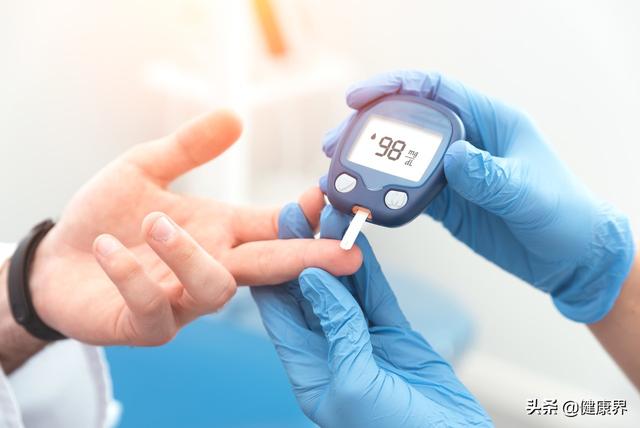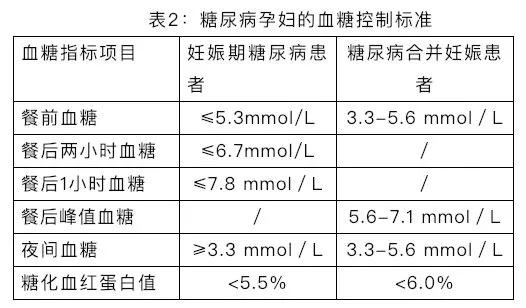How do people who find out about diabetes feel?
Discovering diabetes was actually just last year. In a physical examination, I was found to have high blood lipids, and then blood was drawn before and after meals, and it was determined to be diabetes mellitus type 2. At that time, I was baffled, because I know as long as this disease, basically nothing can eat, life-long can not stop taking medication, has been eating until death, they usually love to eat some sweet things, even thin rice can not drink, diabetic people can not do heavy work, can not be tired, can not eat, can not drink and smoke, can not be big fish, can not stay up late ... ... and so on I can not do heavy work, can not be tired, can not eat, can not drink and smoke, can not be big fish and meat, can not stay up all night ... ... and so on. ...etc. I was in despair, because others said that with this disease, life expectancy is much shorter, especially when you see that you can't eat what you want to eat, it is particularly painful. At that time is really did not dare to eat anything, the whole person has lost more than 20 pounds, before the clothes and pants are wearing a lot of loose, hanging on the body, not fit at all. My wife said it was too ugly to be thin and said it was better to be fat. I was thinking I want to thin ah, really want to die of heart. Later I learned that a few of my colleagues also have, we communicate together, what to eat, what can not eat, slowly their mindset also adjusted. In fact, the mindset of this disease is very important, try to eat some light food, drink more water, more exercise, do not stay up late, the medicine is also to eat on time, maintain a good state of mind. That's all I have to say, I hope it's of some help to you.
During clinic visits you sometimes hear a lot of patients talking together and asking.
"What was it like when you first got diabetes?"
Usually patients are very talkative, they will still talk together after the consultation, and those who talk well will leave each other a phone number and add each other as friends. I listened, occasionally exchanged experiences with medication, and more often talked about how I felt when I first found out about diabetes.
Older people will talk more when they get together.
Physical sensations
The way a diabetic feels in the body is the symptoms that the patient experiences when diabetes occurs. The more typical symptoms we must be very familiar with, such as the "three more and one less" symptoms, such as eating, drinking, urinating, weight loss, but many people may not necessarily appear all the symptoms, may appear one or no symptoms at all. Clinically, many people are found during physical examination.
Of course there are some people who find out they have diabetes only after complications have already appeared. For example, fundus lesions, skin infections, gynecological disorders or in the course of a cardiovascular stroke. Symptoms at this point are usually manifestations of a concomitant condition.
Psychological feelings
I once had a patient who came to the department after 1 year of diagnosed diabetes treated with insulin injections and asked.
"Do I really have diabetes? How did I get diabetes?"
Insulin is a hormone that lowers blood sugar, and its use by non-diabetics can lead to severe hypoglycemia or life-threatening conditions, and of course it should only be used by diabetics.
This is told as a joke by the young health care workers, but it is actually a process of psychological change in the diabetic patient. Of course, this patient has been accepted for a long time and has less knowledge about diabetes and is not very good at learning.
Cancer patients typically go through several periods when they learn they have the disease, namelyPeriods of shock denial, anger, consultation, depression and acceptance, diabetes, being a chronic disease, usually also comes with such periods that many patients cannot accept and experience emotional abnormalities.
This is normal, as health care workers and family members, to understand this emotional change of the patient, according to the patient's different periods to take different measures to pacify, to develop appropriate treatment programs to facilitate the patient's acceptance and treatment.
Patients are able to actively communicate with their specialists with the help of medical staff and family members, speak out their confusion, solve their problems, enter the acceptance period as soon as possible, calm their emotions, accept the facts, improve their moods, and seriously face the impact that the disease may have on their lives and work.
I'm Dr. Sun, pay attention to Dr. Sun talk about sugar, continue to learn more quality health knowledge, help please like, have questions please leave a message, will reply!
Diabetic patients, some are no obvious discomfort symptoms, no symptoms, especially young people are generally not easy to find, some are physical examination accidentally found, or some people appear thirst, polyuria, or body thinning, only suddenly think I am not sick, go to the hospital for examination only to find out that there is diabetes, and some people are numbness of the limbs, slow healing of wounds, or blurred vision, or panic and chest tightness, and other complications before going to the Some people only go to the hospital when they have complications such as numbness of limbs, slow healing of wounds, blurred vision, or panic and chest tightness.
What are the early signs and symptoms of diabetes?
1. Excessive drinking, urination, eating and weight loss
When a person with type 1 diabetes suffers from severe hyperglycemia, he or she will have the typical symptoms of "three more and one less", that is, drinking more, urinating more, eating more and losing weight. When ketosis or ketoacidosis occurs, the "three more and one less" symptoms are more obvious.
2. Fatigue and obesity
Type 2 diabetes is usually very inconspicuous in its early onset, and may be preceded by obesity, and if it is not diagnosed in a timely manner, the weight loss will be gradual; and type 2 diabetes may also cause frequent fatigue and weakness.

What do you do when you have diabetes?
1. Go to the hospital and take the medication as prescribed.
2. Regular medical check-ups to observe all relevant indicators.
3, the diet should be properly controlled, the best three meals a day, each meal should not be more than 100 grams of staple food, do not eat high-calorie food less salt, less sugar, less oil, as light as possible.
4. Stop smoking and drinking.
5. Proper exercise.
If you find this answer useful, why don't you give it a like to encourage~
Welcome to follow the health sector, will often share health-related knowledge with you~
How do people who find out about diabetes feel?
I found out that my blood sugar was high when I was pregnant, and I hadn't had a blood sugar check in my past checkups, so I had to consider "gestational diabetes".
A glucose tolerance test will be required during your labor and delivery around 24-28 weeks of pregnancy.
The diagnostic thresholds for fasting, 1 h and 2 h glucose after oral glucose tolerance test (OGTT) were 5.1 mmol/L, 10.0 mmol/L and 8.5 mmol/L, respectively, and GDM was diagnosed when any of the glucose values reached or exceeded the above thresholds.
I did not drink sugar water, so I checked the fasting blood sugar is 6.more, 2 hours after a normal meal blood sugar is more than 9.more, their own diagnosis after the first diet and exercise control, intermittent checking the blood sugar, the child's weight is not too big, there is not much psychological burden.

After I had the baby my blood sugar normalized and then I couldn't keep my mouth shut, and now my fasting blood sugar basically floats around 6.
MMC Patient Interview:
Patient 1:
Diagnosed with type 1 sugar for more than a year, when first diagnosed he felt that he was already seriously controlling his diet, but it was still not ideal, fluctuating a lot, a little inattentive to the postprandial dozen. After more than a year of continuous exploration and learning, frequent glucose measurement, strict control of carbohydrate intake (every meal on the scale), to about nine months suddenly blood sugar behavior, not so sensitive. I now adhere to a reasonable diet, balanced nutrition, and appropriate increase in the intensity of exercise. The control of type 1 sugar is much more difficult than type 2, and it requires sugar lovers to develop their own diet, exercise, work and rest program for their own situation, and adhere to it for a long time. Although I am only thirty years old, although I also panic and fear, but can only be hard to do what should be done every day, do not give up. Friendly reminder to sugar lovers, summer physical consumption, pay attention to carry candy to avoid hypoglycemia. seriously responsible for themselves, manage themselves is to care for their families, together to cheer!
Patient 2:
In March this year, I found out that I have diabetes, and I was very depressed at first, thinking that this is the end of my life. Later, after the doctor's patience, family encouragement, learning about diabetes, but also slowly can face their own condition. I choose to actively control sugar, not only pay attention to diet, but also insist on running 4 kilometers a day, and now my blood sugar is stable. Sugar friends together, let's go for it!
Patient 3:
As a type 1 sugar patient diagnosed last month, now the postprandial blood sugar has been controlled at 5-7, I feel that "keep your mouth shut and keep your legs open" we all know, but the most important thing is still to apply the theory to practice, really adjust the lifestyle in order to actually control blood sugar. We're all going to do our best!
Patient 4:
As an 18 year old with the disease and a 25 year old with the disease, under the guidance of the 15 word policy of "keep your mouth shut, keep your legs open, have a good mindset, check often, and learn more", I have not had any complications. My fasting blood glucose is around 5, 2 hours after meal is below 8, and glycation is around 6.5. I know that I am the first person responsible for my health. It's not scary to get sick, it's scary that you're scared by it! Sugar lovers, cheer up, use our strength, perseverance and tenacity to overcome the disease, and one day, superior medical technology will help us get rid of the annoying hypoglycemic drugs and insulin, and welcome a better tomorrow!
In general, the initial symptoms of diabetes are categorized as follows.
Constant hunger. It has to be said that hunger is one of the major features of the initial symptoms of diabetes and this symptom stays with the diabetic all the time. When a normal person suddenly shows an increased appetite and a preference for sweets, we should be aware that this may be one of the initial symptoms of diabetes.
Dry mouth and tongue. Thirst is a typical manifestation of the initial symptoms of diabetes. People who usually don't drink much water, but now all of a sudden the glass of water doesn't leave their hands, should beware, it may be the initial symptoms of diabetes manifestation.
Weight Loss. Don't be ecstatic when you suddenly lose weight when you are not exercising, not taking diet pills, not doing anything, because this is most likely an early symptom of diabetes. This is because during the initial symptoms of diabetes, the glucose within the bloodstream is not fully utilized, thus making the initial diabetics lose weight suddenly.
Eye diseases are prevalent. Loss of vision, sudden onset of retinal disease, etc. may characterize the initial symptoms of diabetes.
Paralysis of the limbs. If you experience frequent paralysis or bouts of pain in your hands and feet, it may be an early symptom of diabetes. Other early symptoms of diabetes are cramps in the calves at night.
Constipation and diarrhea. One of the initial symptoms of diabetes is diarrhea followed by constipation, constipation followed by diarrhea, and so on. If diarrhea and constipation occur alternately, you should suspect that it may be the initial symptoms of diabetes, and it is best to go to the hospital in time to confirm the diagnosis.
Mental depression. Like the initial symptoms of many other diseases, the initial symptoms of diabetes also include mental depression. The symptoms are basically a lack of energy to do anything, a constant tiredness, and a tendency to want to sleep all the time. Sometimes, people with early diabetes can't even walk or walk up a flight of stairs.
{!-- PGC_VIDEO:{'thumb_height': 1080, 'vposter': 'http://p1.toutiaoimg.com/origin/tos-cn-p-0000/0e6d36796f344b8ea2512f5e29925d3f', 'thumb_width': 1920, 'vid': 'v020162a0000bpq32lvibktp9u7mvt7g', 'vu': 'v020162a0000bpq32lvibktp9u7mvt7g', 'duration': 77.67, 'thumb_url': 'tos-cn-p-0000/0e6d36796f344b8ea2512f5e29925d3f', 'thumb_uri': 'tos-cn-p-0000/0e6d36796f344b8ea2512f5e29925d3f', 'video_size': {'high': {'duration': 77.67, 'h': 1080, 'w': 1920}, 'ultra': {'duration': 77.67, 'h': 1080, 'w': 1920}, 'normal': {'duration': 77.67, 'h': 1080, 'w': 1920}}} --}
Poor thing. No chance with the food.
Dizziness, panic attacks, generalized weakness
This question and answer are from the site users, does not represent the position of the site, such as infringement, please contact the administrator to delete.